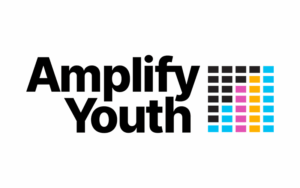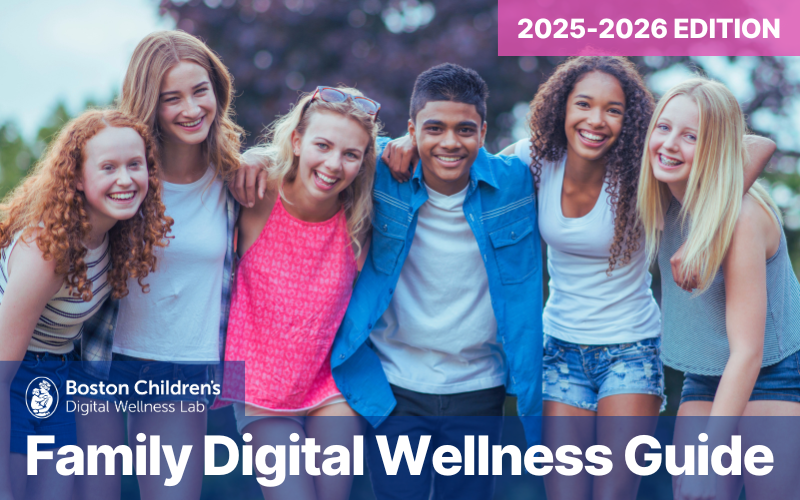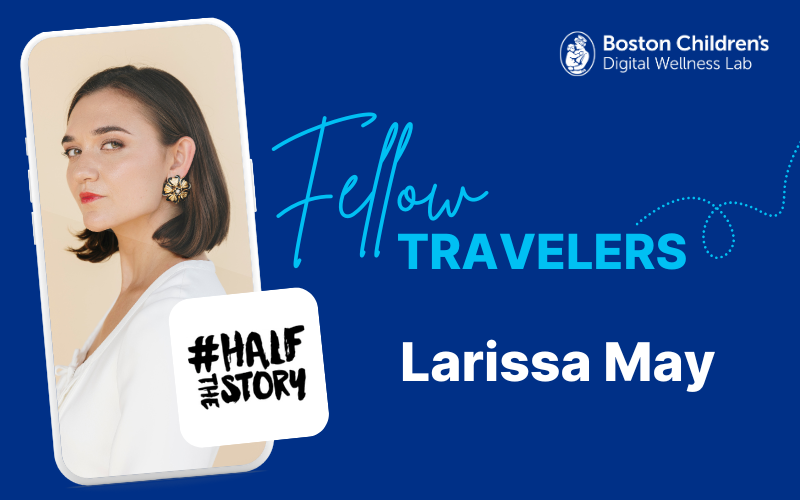Larissa May
Founder and Executive Director, #HalfTheStory
What is your organization’s mission, and what do you focus on?
#HalfTheStory is a non-profit dedicated to improving the next generation’s relationship with technology. I founded #HalfTheStory after facing my own struggles with social media, and have spent the past nine years driving the rapidly growing global movement towards digital wellness. As the first youth-led non-profit of its kind, #HalfTheStory is focused on progressing education and advocacy work surrounding social media and tech use. Through #HalfTheStory’s evidence-based education program, Social Media U, young people across schools in the US and UK are taught the skills needed to have a healthy relationship with their screens and are empowered to understand and advocate for their digital health.
What led you to this work
Like many entrepreneurs, I built something that I needed for myself as a young person that did not exist. I started #HalfTheStory when I hit rock bottom in college as a fashion entrepreneur / blogger and realized the toll that technology was taking on my mental health. I had a lightbulb moment that social media was only “half the story” — that there was an opportunity to create a more connected experience through authentic social storytelling. I didn’t want to be part of the problem, I wanted to fix it. My conclusion was that the systems are not in place for kids to develop healthy relationships with technology, so I started #HalfTheStory out of my college dorm room, and now we’re a global non-profit that has reached millions of youth around the globe.
What have you learned about young people’s wellness while engaging with tech and interactive media in the course of your work?
I’m learning every day. In sum, here are a few of my takeaways:
Digital Wellness is an Inside Job: What is going on inside our heads often impacts our tech habits, and our tech habits do the same to our emotions.
Deficit-Based Doesn’t Work: When it comes to teens and tech, deficit and abstinence-based models don’t work. Technology is a social determinant of health — in other words, most teens these days need tech to participate in modern society, school, work, and the list goes on.
The Opportunity Cost of Technology is EQ: Technology prunes teens and adults of our ability to connect with our emotions because it’s easier to escape from them.
Digital Wellness is a Spectrum: Like every other form of wellness — physical, emotional, sleep — the only constant is change! We are always evolving.
What guidance or advice do you have for parents and other caregivers regarding helping kids build and maintain their wellness when engaging with digital media and technology?
Show, Don’t Tell: Before a child has their device, model what it looks like to incorporate non-negotiables into the day-to-day.
Lead with Questions, Not Answers: We all want to sit down with our kids and give them an answer or direction. The truth is, teens are the experts when it comes to tech, so give them the tools to find the answers.
Not All Screen Time is Created Equal: Focusing solely on “screen time” oversimplifies our digital habits. It’s time to recognize that not all tech use is created equal. What you do online matters more than how much time you spend.
How would you change or design technology and/or media to be healthier for kids across the developmental span?
I would design and add features that empower emotional agency, such as the ability to reset your algorithm on a lousy day, flipping the “like” action to an action that allows you to reflect how the content makes you feel, slowing the speed of the feed, and opting into the algorithm rather than opting out of it.
Is there anything else you’d like to share?
I am proud to be an advisor to the Inspired Internet Pledge! To learn more about #HalfTheStory, check out:
We know that no one person, organization, or company can successfully address the challenge alone, so it’s imperative that we collaborate to design and maintain a healthier digital experience for all young people and their families. Our Fellow Travelers blog series features colleagues from around the world who focus on digital wellness from a different perspective than the Digital Wellness Lab, enabling us to share expertise in key areas of digital wellness that we don’t explore as deeply.
Here at the Lab, we welcome different viewpoints and perspectives. However, the opinions and ideas expressed here do not necessarily represent the views, research, or recommendations of the Digital Wellness Lab, Boston Children’s Hospital, or affiliates.








